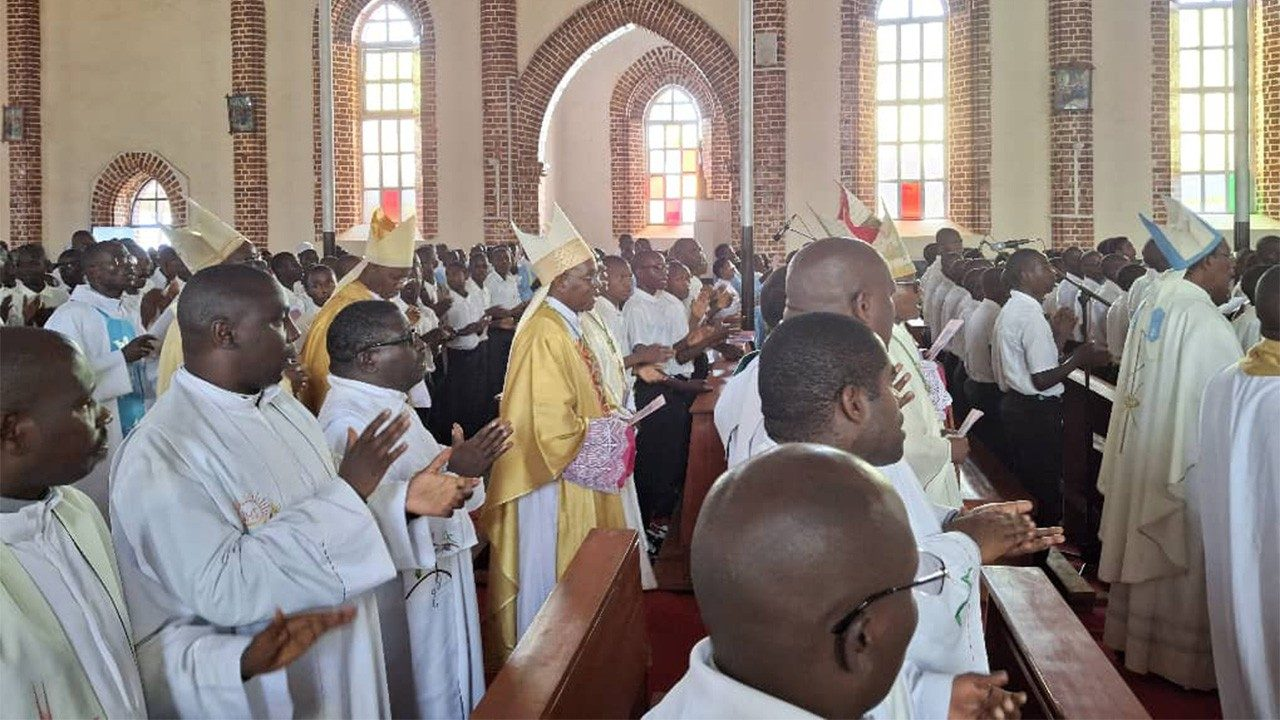Bujumbura: The Saint Cure d Ars Major Seminary in Bujumbura became the vibrant center of national reflection and fraternity as it hosted a priestly congress from August 27 to 30, 2025. Bringing together Bishops and representatives of priests from all eight dioceses of Burundi, the gathering served a dual purpose: to commemorate the centenary of the first Burundian priestly ordinations (1925–2025) and to celebrate the Jubilee Year observed by the universal Church. Archbishop Bonaventure Nahimana of Gitega, President of the Burundian Episcopal Conference, presided over the opening Mass, reflecting on readings linked to Saint John the Baptist’s martyrdom and calling priests to embrace their prophetic mission in a nation still healing from the scars of war, where the promotion of truth and justice remains essential.
The congress also offered a moment of gratitude toward the Missionaries of Africa, known as the White Fathers, who played a pivotal role in evangelizing Burundi and forming its first indigenous priests. Today, the Burundian Church thrives with over 1,300 local priests serving a population where nearly 70 percent identify as Catholic. Many clergy and consecrated persons have also extended their missionary work across Africa and Europe, testifying to the vitality and fertility of faith in the country. Throughout the event, priests engaged deeply with two central themes: the identity and mission of the priest within Burundi’s socio-cultural context and the importance of maintaining the physical well-being of clergy in service to their communities.

Workshops at the congress highlighted the manifold challenges confronting Burundian priests. Widespread poverty affects all layers of society, generating insecurities that touch even the clergy. Formation, both initial seminary training and ongoing professional development, was another focal point, along with the training of lay faithful who support priests in pastoral and temporal responsibilities. The congress also addressed the lingering impact of fratricidal conflicts on the nation and the Church. Wounded memories continue to hinder reconciliation among the faithful and even within the clergy, challenging pastoral efforts aimed at unity and peace. Participants suggested revisiting the outcomes of diocesan synods held after the Arusha peace agreements as a strategy to strengthen the Church as a family promoting reconciliation.
Despite these hurdles, the atmosphere at the Bujumbura congress was one of hope and renewal. Priests left with renewed energy and commitment to their missions, inspired to develop initiatives that deepen a sense of identity, mission, and pastoral responsibility. Plans include practical projects aimed at ensuring the Church’s material and pastoral self-sufficiency, as well as establishing or improving solidarity networks to provide financial support among priests and apostolic workers. The national congress emerged not only as a celebration of a century of faith but also as a catalyst for a future in which Burundian priests can serve their communities with renewed vigor, united in purpose and resilient in the face of societal and ecclesiastical challenges.